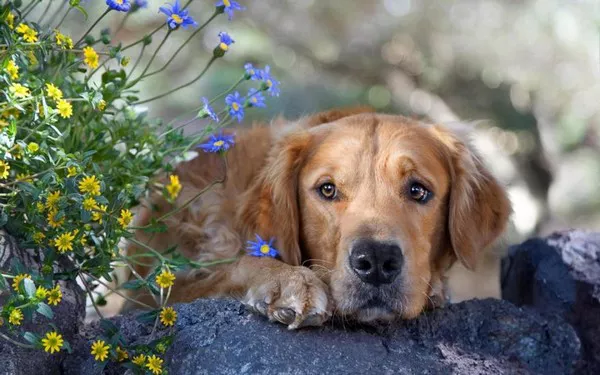Golden Retrievers are known for their intelligence, friendly demeanor, and loyalty, making them one of the most popular dog breeds in the world. One of the essential aspects of raising a well-behaved Golden Retriever is potty training. This process can be challenging but is crucial for ensuring a clean and harmonious living environment. In this comprehensive article, we will explore how long it typically takes to potty train a Golden Retriever and provide detailed steps and tips to make the process as smooth as possible.
Understanding the Potty Training Timeline
Potty training a Golden Retriever can vary significantly in duration, depending on several factors such as the puppy’s age, individual temperament, consistency in training, and the methods used. On average, it can take anywhere from a few weeks to several months to fully potty train a Golden Retriever.
Factors Affecting the Training Duration
Age of the Puppy:
Puppies around 8-12 weeks old are typically more adaptable to potty training. Younger puppies may take longer to understand the process due to their limited bladder control.
Consistency and Routine:
Establishing a consistent routine is crucial. Puppies thrive on routine, and consistent training can significantly reduce the time required for potty training.
Training Methods:
The effectiveness of the training methods used can impact the training timeline. Positive reinforcement techniques are generally more effective and quicker than punitive methods.
Individual Temperament:
Each puppy is unique. Some Golden Retrievers may pick up training quickly, while others might take more time. Patience is key.
Step-by-Step Potty Training Guide
Step 1: Establish a Potty Spot
Choose a designated potty spot outside where you want your Golden Retriever to relieve itself. This helps the puppy associate a specific area with potty time.
Step 2: Create a Consistent Routine
Consistency is crucial in potty training. Take your puppy to the designated potty spot at regular intervals, such as:
- First thing in the morning
- After meals
- After playtime
- Before bedtime
Step 3: Use Positive Reinforcement
Reward your puppy immediately after it successfully goes potty outside. Use treats, praise, and affection to reinforce the positive behavior. This helps the puppy understand that going potty outside is a desirable action.
Step 4: Monitor and Supervise
Keep a close eye on your puppy, especially during the initial stages of training. Watch for signs that indicate the puppy needs to go potty, such as sniffing the ground, circling, or whining.
Step 5: Confine When Necessary
Use a crate or a confined space when you cannot supervise your puppy. Puppies are less likely to soil their sleeping area, and this helps in teaching bladder control. Ensure the crate is appropriately sized – large enough for the puppy to stand, turn around, and lie down comfortably.
Step 6: Be Patient and Persistent
Accidents will happen, and it’s essential to remain patient. Do not punish your puppy for accidents. Instead, clean up the mess thoroughly to remove any lingering odor that might attract the puppy to the same spot.
Addressing Common Challenges
Dealing with Accidents
Accidents are a normal part of the potty training process. When an accident occurs, clean the area thoroughly with an enzymatic cleaner to eliminate the odor. Avoid using ammonia-based cleaners, as they can mimic the smell of urine.
Nighttime Potty Training
Puppies may need to go potty during the night. Take your puppy out for a final potty break before bedtime and be prepared for nighttime outings until the puppy develops better bladder control.
Regression
It’s not uncommon for puppies to experience regression during the training process. If this happens, revisit the basics and reinforce the training routine.
Advanced Potty Training Tips
Bell Training
Bell training involves teaching your puppy to ring a bell hung on the door handle when it needs to go outside. To start, ring the bell each time you take your puppy out for a potty break. Over time, the puppy will learn to associate ringing the bell with going outside.
Potty Training Pads
Potty training pads can be useful, especially for apartment dwellers or during extreme weather. Gradually move the pads closer to the door until the puppy learns to go outside.
Scheduled Feeding
Implement a scheduled feeding routine to regulate your puppy’s potty schedule. Avoid free-feeding, as it can lead to unpredictable potty times.
Monitoring Progress and Adjusting Strategies
Keeping a Potty Log
Maintain a potty log to track your puppy’s potty schedule, including successful outings and accidents. This can help identify patterns and adjust the training routine accordingly.
Adjusting the Routine
As your puppy grows and gains better bladder control, adjust the potty schedule to accommodate longer intervals between potty breaks. Gradually reduce the frequency of potty breaks as the puppy matures.
When to Seek Professional Help
If you’re facing significant challenges or if your Golden Retriever is not making progress despite consistent efforts, consider seeking help from a professional dog trainer or a veterinarian. Behavioral issues, medical conditions, or improper training techniques might be contributing to the difficulties.
See also: When Do Australian shepherd growth plates close?
Conclusion
Potty training a Golden Retriever requires time, patience, and consistency. While the timeline can vary, most puppies can be fully potty trained within a few months with diligent effort and positive reinforcement. By establishing a routine, using effective training methods, and addressing challenges with patience, you can successfully potty train your Golden Retriever and enjoy a clean and harmonious living environment. Remember, each puppy is unique, and the key to successful potty training lies in understanding and adapting to your puppy’s individual needs.


